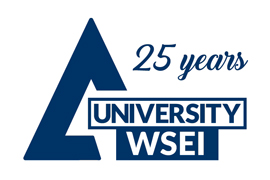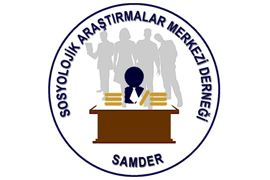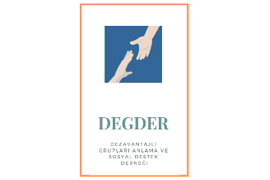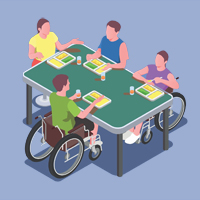IPAR - Innovative Support And Education For Parents Of Children With Disabilities Through Informal Advising
The ongoing global challenges faced by parents of children with disabilities have placed immense pressure on both public and private organizations tasked with providing essential support and services.
In response to this urgent need, our project aims to enhance the operational and personnel capacity of these organizations and enable them to better meet the diverse and complex needs of families with children with disabilities seeking opportunities in new communities. By fostering an inclusive and supportive environment, we aim to empower these organizations to adapt, improve, and scale their services effectively.
Through the use of state-of-the-art technology, fostering collaboration and enhancing cultural understanding, our project aims to expand support, counseling and training services for parents of children with disabilities, guiding them in addressing their children's issues through informal counseling, information and communication technologies. By preparing experienced parents to provide informal advising for the parents in need, we want to support social inclusion of parents of children with disabilities and facilitate non-formal and informal lifelong learning.





About Project
The activities targeted by the project are:
Our project prioritizes empowering public and private organizations with the knowledge, tools, and skills necessary to enhance their service provision capabilities. Tailored training sessions, workshops, and resources will address the specific challenges these organizations face.

By embracing technological advancements and fostering creative problem-solving, we aim to develop innovative approaches that streamline processes, improve efficiency, and expand the reach of support services to a broader population.

We emphasize the importance of collaboration among stakeholders, including governmental bodies, NGOs, and local communities. By facilitating partnerships, the project will create a cohesive network that amplifies the impact of services provided.

Our project underscores the importance of empowering parents of children with disabilities by offering opportunities for skill development, education, and entrepreneurship. This will promote self-sufficiency and foster a sense of belonging within their communities.

Recognizing and respecting the unique cultural backgrounds and experiences of those served is crucial. The project encourages cultural exchange and sensitivity among service providers, ensuring respectful and effective service delivery.

To further promote social inclusion, the project focuses on supporting parents of children with disabilities through informal advising.
Parents often face challenges in accessing information, education, healthcare, the labor market, and compensatory benefits, as well as in
handling official matters. Through the IPAR Comprehensive Training Program for Informal Advisors, parents with relevant experience and
knowledge will be trained to share valuable information and provide guidance to other parents in similar situations
Education Focus Areas:
- Personal Development: Enhancing self-awareness and emotional resilience.
- Social Competencies: Building interpersonal and collaborative skills.
- Communication Skills: Improving clarity, empathy, and active listening.
- Advisory Competencies: Strengthening the ability to guide others effectively.
- Digital Skills: Leveraging technology for efficient communication and support.
- Ethical Considerations: Establishing boundaries and maintaining professionalism.
Through this program, informal advisors will deliver higher-quality consultations tailored to the type of disability. These consultations, facilitated via information and communication technologies, will ensure faster and more accessible support, even in rural and remote regions with limited resources. Parents will receive the assistance they need to address challenges related to raising children with disabilities, finding suitable employment, and overcoming barriers to equal opportunities and social inclusion.
Involving parents in informal advising education also promotes lifelong learning. Through this advising process, parents in need will gain new insights into solving their problems, engaging in informal and non-formal learning opportunities. Additionally, the program aims to assist parents in understanding and processing their emotions regarding their child's disability. This fosters positive transformations in their lives, enhances parental mental health, and contributes to a more inclusive and compassionate society.
This comprehensive approach will strengthen the capacities of organizations and create a supportive network that positively impacts the lives of parents of children with disabilities, ensuring a brighter and more equitable future for all.

The Importance of Widespread Project Implementation

The widespread implementation of this project holds significant importance for several reasons:
By developing and strengthening the operational and personal capacities of public and non-public organizations, the project will improve support services for parents of children with disabilities. Enhanced organizational capabilities will ensure these entities are better equipped to address the diverse and complex needs of the vulnerable populations they serve.
The project’s innovative approaches will foster an inclusive and supportive environment for parents of children with disabilities. It also aims to increase social participation by encouraging lifelong learning.
Promoting collaboration among stakeholders—including governmental bodies, NGOs, and local communities—will optimize resource allocation. This efficiency will ensure a more effective and sustainable delivery of support services.
The project emphasizes skill development, education, and entrepreneurship opportunities for parents, enabling them to become self-sufficient and active contributors to society. Over time, this will reduce dependence on aid and increase resilience.
By encouraging cultural exchange and sensitivity, the project ensures services are delivered respectfully and appropriately. This fosters trust between service providers and the communities they serve, enhancing communication and cooperation.
Supporting parents of children with disabilities is a complex global issue that requires collective action and innovative solutions. This project’s widespread implementation contributes to addressing these challenges effectively on a larger scale.
A successful project implementation can serve as a model for other regions and countries facing similar challenges. It has the potential to inspire and guide similar initiatives globally, multiplying its impact and promoting a unified movement to support parents of children with disabilities.
Providing support and services for parents of children with disabilities is a humanitarian duty that transcends borders. Advocating for this project reaffirms our commitment to protecting the rights and dignity of these individuals.
Dissemination Targets

The primary dissemination targets for the project include:
The outcomes and findings will be shared with organizations involved in supporting parents of children with disabilities, such as government agencies, NGOs, community-based organizations, and private institutions.
Engaging with local, regional, and national policymakers will influence regulations and policies to ensure more effective and inclusive approaches to disability support services.
Frontline workers, including caseworkers, social workers, counselors, educators, and healthcare professionals, will benefit from the dissemination of innovative approaches and best practices.
Sharing project objectives and outcomes with host communities fosters better understanding, empathy, and support for parents of children with disabilities.
The project findings and lessons learned will contribute to the academic field of disability studies and inform future research endeavors.
Engaging with funding organizations and donors will ensure ongoing financial support and sustainability for the project.
Raising awareness through media and public engagement highlights the challenges faced by parents of children with disabilities and underscores the importance of supporting them.
The project will share its experiences, lessons, and best practices with international organizations, fostering global collaboration and
knowledge exchange.
The widespread implementation of this project is essential to creating a more inclusive, compassionate, and supportive world for
parents of children with disabilities. By empowering organizations, promoting innovative approaches, and fostering collaboration,
we aim to build an environment that encourages growth, integration, and mutual understanding among diverse communities.
Through collective action, we can ensure a positive and lasting impact on the lives of those who need it most.
To achieve the project’s objectives, partners will implement an effective dissemination strategy that addresses all dimensions
necessary to reach the target audience and promote the project’s outputs.
Project Partners
 Kırıkkale University
Kırıkkale University Lubelska Akademia WSEI
Lubelska Akademia WSEI Sosyolojik Araştırma Merkezi (SAMDER)
Sosyolojik Araştırma Merkezi (SAMDER) Spolupracou prelepsiu buducnost - Velky Meder
Spolupracou prelepsiu buducnost - Velky Meder Dezavantajlı Grupları Anlama ve Sosyal Destek Derneği (DEGDER)
Dezavantajlı Grupları Anlama ve Sosyal Destek Derneği (DEGDER)OUR ACTIVITIES
On January 30, 2025, the opening meeting of our project, coordinated by Kırıkkale University, was held. At the opening conference, attended by our Vice Rectors and Faculty Members, Dr. Nuray Öztürk gave an introductory speech about the project's goals and objectives. Our esteemed Vice Rectors emphasized the importance of the project for the university and stated that they would provide all necessary support to achieve successful outcomes.
Representatives from Slovakia and Poland also attended and spoke about the situation of families with disabled children in their countries, state support, and necessary actions. From Turkey, Prof. Dr. Mustafa Keskin highlighted the situation in Turkey. In the afternoon, a visit to the weapon museum was organized, followed by the second session and the certificate distribution ceremony.
Contact Us
- Phone: 0318-357 42 42










